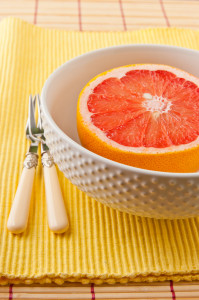Dealing with a minor illness? Before heading to the medicine cabinet, I recommend considering remedies in your kitchen cabinet first.
There are many safe and effective natural cures hiding in plain sight in your spice rack and among your baking supplies. Of course, these aren’t meant to replace necessary prescription medications. Always consult your physician first to make sure these treatments are right for you and your family.
As an integrative physician, I researched natural therapies for my book,Treatment Alternatives for Children. As I discovered, food-based remedies generally have fewer potential adverse effects than conventional over-the-counter medications — and they can be just as effective. Here’s a list of nine of my favorites, and how they can help you heal:
1. Apple cider vinegar
Traditionally, apple cider vinegar has been used to help alleviate constipation and indigestion. Research also suggests it can balance blood sugar and lipid levels. Most people who use it in this way drink 1 tablespoon daily, diluted in water.
2. Baking soda
Baking soda can have a soothing effect on irritated skin, relieving itching and irritation from insect bites and stings. Apply a small amount mixed in any natural moisturizing cream or ointment as needed.
It can also help clean teeth and eradicate bad breath when mixed with water — simply rinse as you regularly would and spit out.
3. Cinnamon
Research shows this spice can help improve cognitive skills like memory. Cinnamon may also assist in regulating blood sugar and cholesterol. Use it liberally in cooking or baking, or sprinkle onto your morning coffee.
4. Coconut oil
Coconut oil moisturizes the skin and helps heal inflamed skin conditions like eczema. I also recommend it as a great topical treatment for babies with cradle cap. Coconut oil has both antibacterial and antifungalproperties.
5. Ginger
Ginger is one of my favorite anti-nausea and anti-motion-sickness remedies. You can find it in chewable form, or simply dice fresh ginger and mix it in hot water as a tea to sip. Ginger has anti-inflammatory properties, so people sometimes use it to help with arthritis.
6. Honey
Honey is truly magical, with research showing it’s an effective cough remedy. It also has antimicrobial properties – especially New Zealand’s Manuka variant – and is useful as a topical agent to combat minor skin infections. Finally, locally cultivated honey has been proven useful to prevent seasonal allergies if ingested in small amounts prior to developing symptoms.
7. Turmeric
Turmeric, a spice often used in Indian dishes, has powerful anti-inflammatory and antibacterial properties. Often combined with other spices like ginger, it can help relieve joint pain from inflammation.
8. Olive oil
Olive oil is a key ingredient in the heart-healthy Mediterranean diet, so use it as much as you can while cooking. It also happens to be useful as atopical oil, with anti-inflammatory properties to help address skin conditions like eczema, seborrhea, and psoriasis.
9. Sea salt
Sea salt is not only a healthy alternative while cooking, but it can also be mixed with distilled water to make a DIY saline solution to relieve nasal congestion. When added to warm water, sea salt can also help soothe aching feet at the end of a long day.
(originally posted for MindBodyGreen)

Leave a Reply
You must be logged in to post a comment.